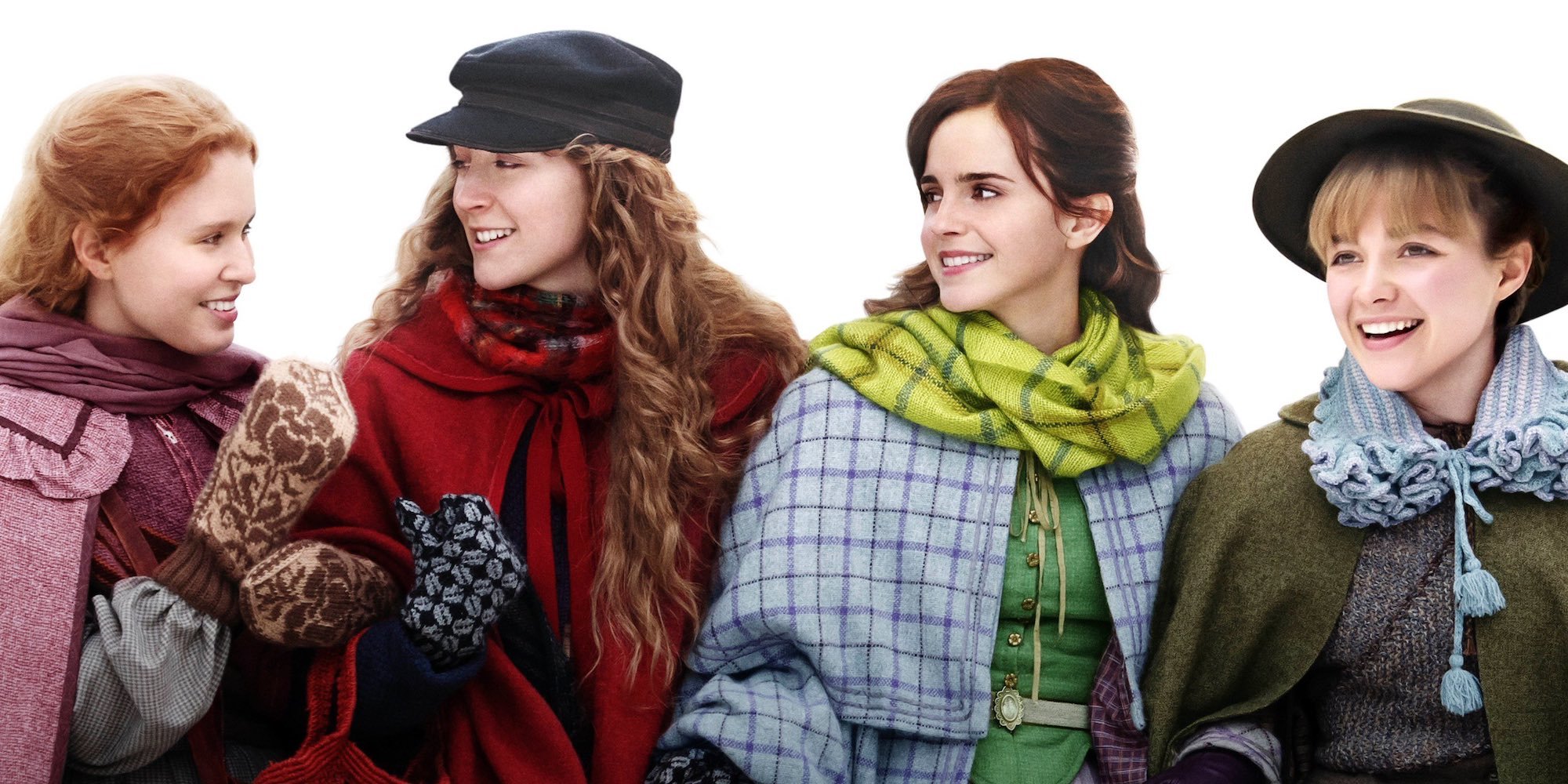Greta Gerwig sure does love challenges. For her first feature film, she up and made one of the best films of the decade. What was next? A period piece adaptation of a beloved novel that’s been adapted multiple times to film already. I mean, why draw comparisons to JUST your past films, when you can include all of Hollywood as well right? Having personally loved the 1994 adaptation, I can honestly say that 2019’s is better, and probably the best adaptation of Louisa May Alcott’s novel to date, with Gerwig walking a fine line of changing the source material while honoring it at the same time. Little Women also sets up Gerwig as THE filmmaker to watch next decade, having so successfully directing two spectacular films: her FIRST two films.
For those who don’t know (e.g, mostly men), Little Women is ostensibly about the 4 March sisters: Meg (Emma Watson), Amy (Florence Pugh), Beth (Eliza Scanlen) and Jo (Saoirse Ronan). The story takes place in two time periods: when they were younger siblings growing up together, and when they go out and become adults, including their attempts to find love or make it on their own. Raising the girls while their father (Bob Odenkirk) is away are Marmee (Laura Dern) and Aunt March (Meryl Streep), teaching them what a woman’s place is in 1800s Connecticut. Eagerly wanting to join the March sisters is Theodore ‘Laurie’ Laurence (Timothee Chalamet), who is encouraged by his grandfather (Chris Cooper) to make friends, and who knows? Either way, plays are written, and fun will be had.
Great adaptations breathe new life and themes into the story being adapted, while maintaining what people love about the text. 2019’s Little Women finds that blend exquisitely. Instead of telling the story in chronological order, Gerwig deconstructs the story, merging past and present together in concert with one another. Of course the talented director was going to make the younger scenes with the girls pop with joy and youthful exuberance, but when using those scenes to explain Jo’s living life on her own, or Amy and Laurie’s life in Paris, Gerwig basically stitches together all her main characters, little by little, into fully realized people. Gerwig also recontextualizes large chunks of Alcott’s story that jarred people decades ago. Amy, for example, can come off whiny and pretentious in the hands of a lesser director; Gerwig, on the other hand, paints her like a jealous younger sibling, wanting Jo’s gifts but lacking in some way, especially when it comes to her relationship with Laurie. Money also plays a bigger factor in the 2019 adaptation; Gerwig gives all the March sisters that ubiquitous problem: compromising between art and living comfortably. Specifically, this movie shows how women cannot be uncompromising in 1800s Connecticut because it would leave them destitute, between the lines of the Alcott novel that Gerwig extrapolates. Gerwig’s other big addition to Little Women is changing Alcott’s ending. I won’t spoil here, but Gerwig’s ending is derived from material she read about Alcott herself, and why she chose to end Little Women the way she did. Gerwig did her homework.
At Greta’s side is a murderer’s row of acting talent, starting with her muse. No Little Women adaptation can truly succeed without nailing Jo March, THE archetype for a progressive, trailblazing woman. Saoirse Ronan supposedly TOLD Gerwig she was playing Jo; how befitting for the character. Ronan plays Jo like the character was meant to be: artistic, athletic, stubborn, emotionally complicated, fiercely independent. Ronan can proudly stand with Katharine Hepburn and Winona Ryder, further proving what a spectacular talent she is, and what a future she probably has ahead of her. The big surprise is Florence Pugh’s Amy. Pugh gives Amy a similar wild enthusiasm that Jo has, but also a bit of Meg’s desire to be in high society, two conflicting ideas that Pugh milks to make Amy this Little Women’s most compelling interpretation. Emma Watson slides right in in an almost meta way as the elder stateswoman of the 4 sisters. Meg can sometimes get the short shrift in these stories because of Jo and Amy, but Watson gives her a confidence in her life choices and stands as a testament for a woman who chooses love first. Similarly, Eliza Scanlen elevates Beth above a simple archetype or plot device with her acting talent. Laura Dern and Meryl Streep play minor roles, but lend the story heft and a veteran, stable hand. Not to be outdone, the boys also get compelling arcs. Timothee Chalamet, also a Gerwig muse, is excellent as Laurie. We have to believe he would be charming enough to woo multiple March sisters, collaborative enough to fit right into their little artistic endeavors, and sensitive enough to fit Alcott’s writing of the character, which Chalamet achieves and then some. Chris Cooper is also quite warm and lovely (against type) as Laurie’s grandfather, and gets some great moments with all the March’s, but Beth specifically.
It’s truly amazing to see such depth of character, feeling, and themes pulled from Louisa May Alcott’s beloved Little Women. It’s easy to see what drew Greta Gerwig to the material: she basically IS Alcott/Jo March, an artist trying to make her way in a world that isn’t ready for her yet. Here’s to what Gerwig has done, and how she transferred Alcott’s essence into the next generation. Saorise Ronan, Florence Pugh, Timothee Chalamet: the pressure is on you to take what your talented director has given to you and continue to grow and evolve the essence of Little Women for the next generation. Maybe Jo will do some hip hop in the next iteration? Yes, too much, sorry.

